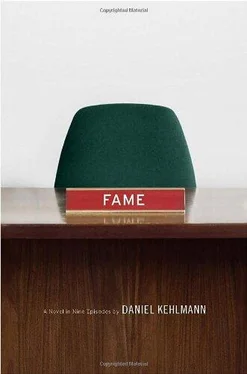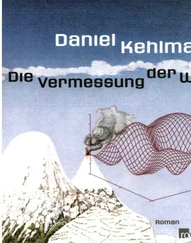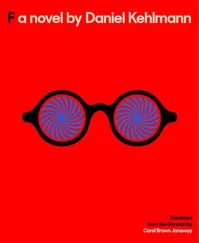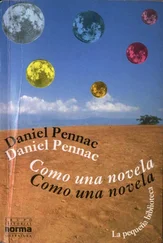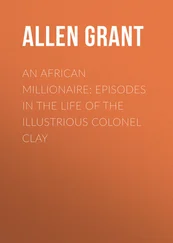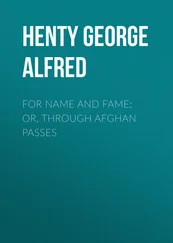He hesitated. Had he sighed again? In a sudden impulse, he held his arms wide; it was as if he were feeling a sea wind. But of course he knew it was only the breeze from the almost-silent air conditioner.
As he walked toward his desk, his fingertips delicately removed a flower seed from his sleeve, flicked it away, and he watched the tiny silky fluff float away, sparkle in a ray of sunshine, and vanish into the air. Then he sank into his desk chair: upholstered in leather, supple, following the contours of his back exactly, made by the best chair-maker in São Paulo. For a few seconds he rocked, the tips of both index fingers against his nose, his thumbs between his lips pursed in thought. Then he opened the second drawer from the top and took out, as he did so often, a pistol that was lying inside ready: a Glock, barrel length 114 millimeters, caliber 9 millimeters, never used, for which he had not only a permit but also authorization to carry it loaded.
Miguel Auristos Blanco liked weapons, if only as toys, he had never used one in anger. On his sun-spangled lawn in Parati he regularly did target practice, sometimes with bow and arrow, sometimes with a light hunting rifle in front of the patiently receptive round board. A Steady Hand Makes a Calm Spirit was the title of the book in which he elaborated on how when shooting one must become One with the target, so that success is no longer a concern, and for this very reason, one enters a paradoxical state that oscillates between tension and detachment and hits the bull’s-eye. It was not his strongest work, and only years later did he realize with a certain shock that it paraphrased almost in its entirety a very famous book about Japanese archery that he had once thumbed through when he was young. His readers hadn’t been bothered, and shortly after its publication a grateful manufacturer of sporting bows had told him how it had increased worldwide demand for his products.
He leaned down—the chair emitted a groan and he felt a brief twinge in his back—and took the ammunition clips out of the drawer. With careful hands, eyes narrowed and lips pursed, he loaded the pistol, pushing a clip into the magazine, then pulling back the bolt, and letting it snap forward again—something you see so often in films that he realized it made him feel unintentionally like an actor when he did it himself.
The sun had set, flames of red dissolved themselves in the water, the mountain peaks glinted with an icy light, and between the hovels of the favelas he could see the snaking lines of unpaved streets. Miguel Auristos Blanco stood up, reached for the four letters his secretary had selected from the day’s mail (every day he received innumerable pleas for advice and help, along with tearful life stories, offers of marriage, prayers, and manuscripts of novels which were about either the search for life’s meaning or UFOs, plus invitations to conferences in dozens of cities, where there were directors of libraries, meditation centers, and bookshops who knew that this man was so busy he had no time to make personal appearances but didn’t want to give up hope that he would make an exception for them just this once, and extracted the first out of its envelope, which had already been slit open for him.
It was written on handmade deckled paper, with the letterheading of the United Nations, under which was the inquiry as to whether, if the jury decided in his favor, he would accept the Dialogue Between the Nations Award and be prepared to address the General Assembly. He smiled. The second letter was from his biographer Camier in Lyons asking in his respectful tiny handwriting for a further interview to discuss his time in a Japanese monastery thirty years ago, his study of the koans, the wisdom of the East, and of course his first, second, and third marriages; as always, Camier assured him, he could rely on the discretion of the authorized biographer that nothing that he didn’t want would end up in print. Miguel Auristos Blanco paused. He didn’t believe Camier, but what could he do other than agree to the interview?
The third in the stack, without an envelope, was a postcard from Tenerife, where Aurelia was now living with their two children. The house, formerly belonging to both of them, was now hers exclusively, and it was almost a year since the last time he’d seen Luis and Laura. He had wondered all that time why he didn’t miss them more, and to explain it to himself, he had added a whole chapter to Ask the Cosmos, It Will Speak about how we only suffer the absence of those whose souls are not in harmony with our own. Whereas those closest to us who are part, as it were, of our very being, arouse no need in us to have them at our side, for what they feel, we feel, regardless of how far away they are, and what they suffer, we suffer, and every actual conversation with them is no more than a superfluous confirmation of the self-evident. He spent thirty seconds contemplating the photograph on the front (bay, mountains, flag, swarm of seagulls) and the two little signatures, then he set the card aside.
The fourth letter was from Sra. Angela João, the abbess of the Carmelite Convent of the Holy Providence in Belo Horizonte, who asked him in the name of that old friendship (either his memory was failing or hers was, because he couldn’t remember ever having met her) for some words on theodicy for her edification and that of her sister nuns: why did suffering exist, why did loneliness, why above all was God so utterly distant, and yet why was the world so perfectly organized?
He shook his head irritably. He would soon need a new secretary. This one was obviously suffering from overload. No letter as tiresome as this one should ever have reached his desk.
The boats were casting enormously long shadows, the water shimmered blood-red, and dark fire flared in the sky. He had watched countless sunsets from this window, yet every one of them seemed like the first to him, and he felt he was witnessing a complicated experiment that could go horribly wrong from one evening to the next. He put the letter down pensively and took the pistol, his fingers searching instinctively, as they had the last time, three days ago, for the safety catch, until he realized that Glocks don’t have one and that on this particular model the trigger itself was the safety catch. He pointed the weapon at himself and looked into the mouth of the barrel. He’d often done it before, of an evening, usually around about this time, and as always he could feel himself begin to sweat. He put the pistol down, switched on the computer, and waited for the machine to laboriously boot up. Then he began to write.
But why? He himself didn’t really know. Perhaps it was mere politeness, because a question demanded an answer, perhaps also because old women in their religious habits had filled him all his life with a mixture of respect and absolute terror. Dear Abbess, venerable and blessed Reverend Mother, God cannot be justified, life is atrocious, its beauty amoral, even peace is filled with crimes, and no matter whether He exists or not—I’ve never made up my mind about that—I have no doubt that my miserable death will evoke no more pity in Him than the deaths of my children or, some day may it be long distant, Reverend Mothers, yours.
He hesitated, blinked into the last fiery rays of the sun, tilted his head back, and took a deep breath. He listened to the silence. The air conditioning was humming quietly. Then he went back to writing.
He wrote while the sun was sending its last glow across the water; he wrote while the air slowly filled with darkness as if with some fine substance; he wrote while the lights down there glittered more and more distinctly and the smooth black expanse of the sky blended into the mountains; and when he looked up, his shirt wet and his moustache covered with drops of sweat, it was night. Dear Abbess, there are no grounds for hope, and even if God’s existence were to be justified by something other than His flagrant absence, every intelligent argument would still pale before the scale of suffering in the world, before the very fact that suffering exists, and that everything always and eternally, think about this, Reverend Mother, is stained with imperfection. The only things that help us are consoling lies such as the dignity incarnated in your sainted person. May you remain in this state for many years and in fond memory I remain yours, etc.… He double-clicked on the mouse and the printer began to hum. A sheet, another sheet, a third, and then a fourth filled up with letters. Miguel Auristos Blanco picked up the tiny pile and began read.
Читать дальше
